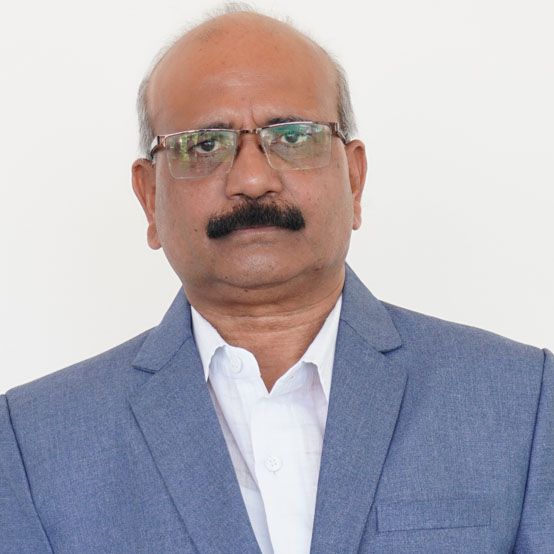Approved by AICTE, Recognised by Govt. and Affiliated to VTU, Accredited ‘A’ level by NAAC.
Dwarakanagar,Bagalur Main Road, Yelahanka, Bangalore-560063
Approved by AICTE, Recognised by Govt. and Affiliated to VTU, Accredited ‘A’ level by NAAC.
Dwarakanagar,Bagalur Main Road, Yelahanka, Bangalore-560063
The Department of Civil Engineering was established in the year 2008 with an intake of 60 and over a short period of time due to remarkable efforts of the Management, Faculty and active students an increase intake from 60 to 120 was achieved. Surge in the Academic, Curricular, Co and Extra Curricular activities resulted in higher success rate with several ranks from the VTU, increased the placements and the cream of the students landed abroad in top universities. Knowing the need of master degree course and on the confidence performance of the Department, M.Tech in Structural Engineering was started in the year 2013 with an intake of 30. Another milestone was achieved by the Department in order to develop and encourage the research needs in Civil Engineering and in the year 2014. The Department was recognised as a research Centre leading to Ph. D from VTU Belagavi and this research culture enabled several research scholars to register for the Ph. D, and more than 200 technical papers have been published in reputed journals, by staff and students.
The Department aims in providing the state of art facilities to the students and transform them into professionals to take up challenges in diversified fields of Civil Engineering, adapt to the ever changing needs of the society and respect humanity.
To develop the department as a conducive centre for teaching & learning and promote quality education, practical training, encourage research, inculcate moral and ethical values, lifelong learning needs.
To motivate the students to take up higher education, entrepreneurship and promote global professionalism.
To encourage contemporary issues and to contribute to societal needs.
1. To apply the principles of mathematics, science and civil engineering in solving problems related to analysis and design of Structures, Transportation systems, Geo-technical Engineering, Water resources and Environmental Engineering.
2. To uphold the ethical principles in their professional ventures and humanitarian concern in all walks of life.
3. Function as an individual, member or as a leader in design and construction and effectively manage the financial and human resources.
PROGRAM OUTCOMES (PO's)
|
PO 1 |
Engineering knowledge : Apply the knowledge of mathematics, science, engineering fundamentals, and an engineering specialisation to the solution of complex engineering problems. |
|
PO 2 |
Problem analysis : Identify, formulate, research literature, and analyse complex engineering problems reaching substantiated conclusions using first principles of mathematics, natural sciences, and engineering sciences. |
|
PO 3 |
Design/development of solutions : Design solutions for complex engineering problems and design system components or processes that meet the specified needs with appropriate consideration for the public health and safety, and the cultural, societal, and environmental considerations. |
|
PO 4 |
Conduct investigations of complex problems : Use research-based knowledge and research methods including design of experiments, analysis and interpretation of data, and synthesis of the information to provide valid conclusions |
|
PO 5 |
Modern tool usage : Create, select, and apply appropriate techniques, resources, and modern engineering and IT tools including prediction and modelling to complex engineering activities with an understanding of the limitations. |
|
PO 6 |
The engineer and society : Apply reasoning informed by the contextual knowledge to assess societal, health, safety, legal, and cultural issues and the consequent responsibilities relevant to the professional engineering practice. |
|
PO 7 |
Environment and sustainability : Understand the impact of the professional engineering solutions in societal and environmental contexts, and demonstrate the knowledge of need for sustainable development. |
|
PO 8 |
Ethics : Apply ethical principles and commit to professional ethics and responsibilities and norms of the engineering practice. |
|
PO 9 |
Individual and team work : Function effectively as an individual, and as a member or leader in diverse teams, and in multidisciplinary settings. |
|
PO 10 |
Communication : Communicate effectively on complex engineering activities with the engineering community and with society at large, such as, being able to comprehend and write effective reports and design documentation, make effective presentations, and give and receive clear instructions. |
|
PO 11 |
Project management and finance : Demonstrate knowledge and understanding of the engineering and management principles and apply these to one‘s own work, as a member and leader in a team, to manage projects and in multidisciplinary environments. |
|
PO 12 |
Life-long learning : Recognise the need for, and have the preparation and ability to engage in independent and life-long learning in the broadest context of technological change. |
Apart from the well planned and well maintained infrastructure of the institution. The department has hi-tech amenities like well-ventilated large classrooms with Wi-Fi facilities, Seminar halls, conference hall, canteen facility and highly equipped laboratories.
3rd to 8th Semester BE – Civil Engineering Scheme of Teaching and Examinations Outcome Based Education (OBE) and Choice Based Credit System (CBCS) (Effective from the academic year 2018 – 19)
General Criteria:
Candidates must have passed Class 10+2 exam from a recognized board with Physics, Chemistry and Mathematics as core subjects.
They must also have secured a minimum aggregate mark of 60% in the above subjects combined.
Management
KCET - E171
COMEDK - E030
| Subject Code | Course Outcomes (CO’s) |
|---|---|
|
21MAT31 |
1.To solve ordinary differential equations using Laplace transform. |
|
21CV32 |
1. Execute survey using compass and plane table. |
|
21CV33 |
1.Evaluate the behaviour when a solid material is subjected to various types of forces (namely Compressive, Tensile, Thermal, Shear, flexure, Torque, internal fluid pressure) and estimate stresses and corresponding strain developed. |
|
21CV34 |
1.Apply geological knowledge in different civil engineering practice. |
|
21CV35 |
1. Prepare, read and interpret the drawings in a professional set up. |
|
21CV381 |
1. Understand Python syntax and semantics and be fluent in the use of Python flow control and functions. |
|
21CV382 |
1. Solve Trigonometric, Logarithmic, Exponential, Statistical problems and perform Matrix operations. |
|
21CV383 |
1. Develop effective communication skills (spoken and written) and effective presentation
Skills. Actively participate in group discussion / meetings / interviews and prepare & deliver
presentations |
|
21CV384 |
1.Prepare a comprehensive development plan for infrastructure projects |
|
21CV385 |
1. Understand types of fire, combustion process and fire resistance |
|
21CIP37/47 |
1. Have constitutional knowledge and legal literacy. |
|
21KBK39/49 |
1.To understands the necessity of learning of local language for comfortable life. |
|
21MAT41 |
<1. Use the concepts of an analytic function and complex potentials to solve the
Problems arising in electromagnetic field theory. Utilize conformal transformation and complex integral arising in aerofoil theory, fluid flow visualization and image processing. |
|
21CV42 |
1. Understand fundamental properties of fluids and solve problems on Hydrostatics |
|
21CV43 |
1. Estimate average and peak water demand for a community. |
|
21CV44 |
1. Evaluate slope and deflections in beams using geometrical methods. |
|
21CVL46 |
1. Comprehend the relations between minerals and rocks based on their physical properties |
|
21CIP37/47 |
1. Have constitutional knowledge and legal literacy. |
|
21UHV49 |
By the end of the course, students are expected to become more aware of themselves, and their surroundings (family, society, nature); they would become more responsible in life, and in handling problems with sustainable solutions, while keeping human relationships and human nature in mind. They would have better critical ability. They would also become sensitive to their commitment towards what they have understood (human values, human relationship and human society). It is hoped that they would be able to apply what they have learnt to their own self in different day-to-day settings in real life, at least a beginning would be made in this direction. Therefore, the course and further follow up is expected to positively impact common graduate attributes like: 1. Holistic vision of life 2. Socially responsible behaviour 3. Environmentally responsible work 4. Ethical human conduct 5. Having Competence and Capabilities for Maintaining Health and Hygiene 6. Appreciation and aspiration for excellence (merit) and gratitude for all |
| Subject Code | Course Outcomes (CO’s) |
|---|---|
|
18MAT31 |
1.Use Laplace transform and inverse Laplace transform in solving differential/ integral equation arising in network analysis, control systems and other fields of engineering. |
|
18CV32 |
1.To evaluates the basic concepts of the stresses and strains for different materials and strength of structural elements. |
|
18CV33 |
1. Possess a sound knowledge of fundamental properties of fluids and fluid Continuum |
|
18CV34 |
1. Select suitable materials for buildings and adopt suitable construction techniques. |
|
18CV35 |
1.Possess a sound knowledge of fundamental principles Geodetics . |
|
18CV36 |
1. Apply geological knowledge in different civil engineering practice. |
|
18CVL37 |
<1. Prepare, read and interpret the drawings in a professional set up. |
|
18CVL38 |
1. Reproduce the basic knowledge of mathematics and engineering in finding the strength in tension, compression, shear and torsion. |
|
18MAT41 |
1. Use the concepts of analytic function and complex potentials to solve the problems arising in electromagnetic field theory. |
|
18CV42 |
1. Identify different forms of structural systems. |
|
18CV43 |
1. Apply dimensional analysis to develop mathematical modelling and compute the parametric values in prototype by analysing the corresponding model parameters . |
|
18CV44 |
1. Relate material characteristics and their influence on microstructure of concrete. |
|
18CV45 |
1. Apply the knowledge of geometric principles to arrive at surveying problems . |
|
18CV46 |
1. Estimate average and peak water demand for a community. |
|
18CVL47 |
1.The students able to identify the minerals, rocks and utilize them effectively in civil engineering practices. |
|
18CVL48 |
<1.Properties of fluids and the use of various instruments for fluid flow measurement. |
|
18MATDIP41 |
1.Solve systems of linear equations using matrix algebra. |
|
18CV51 |
1.Prepare a project plan based on requirements and prepare schedule of a project by understanding the activities and their sequence. |
|
18CV52 |
1. Determine the moment in indeterminate beams and frames having variable moment of inertia and subsidence using slope defection method. |
|
18CV53 |
1. Understand the design philosophy and principles. |
|
18CV54 |
1.Ability to plan and execute geotechnical site investigation program for different civil engineering projects . |
|
18CV55 |
1.Select the appropriate sewer appurtenances and materials in sewer network. |
|
18CV56 |
1. Acquire the capability of proposing a new alignment or re-alignment of existing roads, conduct necessary field investigation for generation of required data. |
|
18CVL57 |
<1.Apply the basic principles of engineering surveying and for linear and angular measurements. |
|
18CVL58 |
1.Able to interpret the experimental results of concrete and highway materials based on laboratory tests. |
|
18CIV59 |
1.Understand the principles of ecology and environmental issues that apply to air, land, and water issues on a global scale. |
|
18CV61 |
1.Possess knowledge of Steel Structures Advantages and Disadvantages of Steel structures, steel code provisions and plastic behaviour of structural steel. |
|
18CV62 |
1.Ability to plan and execute geotechnical site investigation program for different civil engineering projects |
|
18CV63 |
<1. Understand the importance of hydrology and its components. |
|
18CV641 |
1. Evaluate the structural systems to application of concepts of flexibility and stiffness matrices for simple problems. |
|
18CV642 |
1. Analyse existing solid waste management system and to identify their drawbacks. |
|
18CV643 |
1. Solve the problems of Environmental issues concerned to building materials and cost effective building technologies. |
|
18CV644 |
1.Give solutions to solve various problems associated with soil formations having less strength. |
|
18CV645 |
1. Acquires capability of choosing alignment and also design geometric aspects of railway system, runway and taxiway. |
|
18CV651 |
1. Collect data and delineate various elements from the satellite imagery using their spectral signature. |
|
18CV652 |
1.Understand the human factors and vehicular factors in traffic engineering design. |
|
18CV653 |
1.Identify hazards in the work place that poseadang error threat to their safety or health, or that of others. |
|
18CV654 |
1.Learn the sustainability concepts; understand the role and responsibility of engineers in sustainable development. |
|
18CV655 |
1. After studying this course, students would be able to suggest the appropriate system/s in various functional areas of transportation. Would be able to amalgamate the various systems, plan and implement the applications of ITS. Would have learnt the application of information technology and telecommunication to control traffic and also provide advance information to the travellers, automatic handling of emergencies and to improve safety. |
|
18CV656 |
1. Apprehend various components of land as a natural resource and land use planning. |
|
18CVL66 |
1.use software skills in a professional set up to automate the work and thereby reduce cycle time for completion of the work |
|
18CVL67 |
1.Acquire capability to conduct experiments and estimate the concentration of different parameters. |
|
18CVEP68 |
1. Apply Surveying knowledge and tools effectively for the projects |
|
18CV71 |
1. Taking out quantities and work out the cost and preparation of abstract for the estimated cost for various civil engineering works. |
|
18CV72 |
1. Students will acquire the basic knowledge in design of RCC and Steel Structures. |
|
18CV731 |
1. Ability to apply knowledge of mechanics and mathematics to model elastic bodies as continuum. |
|
18CV732 |
1.Identify the major sources of air pollution and understand their effects on health and environment. |
|
18CV733 |
1. Students will be able to evaluate and assess the suitability of any pavement material to be used in various components of pavement by conducting required tests as per IS,IRC specifications |
|
18CV734 |
1. Find the characteristics of aquifers. |
|
18CV735 |
1. Select suitable material for masonry construction by understanding engineering properties. |
|
18CV741 |
1.Acquire basic knowledge of engineering seismology. |
|
18CV742 |
1. Describe the basics of house plumbing and waste water collection and disposal. |
|
18CV743 |
1. Identify, formulate reinforced earth techniques that are suitable for different soils and in different structures. |
|
18CV744 |
<1.Check the stability of gravity dams and designs the dam. |
|
18CV745 |
1. Design, conduct and administer surveys to provide the data required for transportation planning. |
|
18CV751 |
1.The student will have the knowledge on advanced methods of analysis of structures. |
|
18CV752 |
1.The students will have a clear perception of the power of numerical techniques, ideas and would be able to demonstrate the applications of these techniques to problems drawn from Industry, management and other engineering fields. |
|
18CV753 |
1.Appreciate the elements of Corporate Environmental Management systems complying with international environmental management system standards. |
|
18CVL76 |
1. Students will be able to Prepare detailed working drawings |
18CVL77 |
<1.Physical and index properties of the soil |
|
18CV81 |
1. Understand the requirement of PSC members for present scenario. |
|
18CV821 |
1. Understand the load distribution and IRC standards. |
|
18CV822 |
1. Use modular construction, industrialized construction |
|
18CV823 |
1. Estimate the size of isolated and combined foundations to satisfy bearing capacity and settlement criteria. |
|
18CV824 |
1. Identify the causes for structural (Concrete) deterioration. |
|
18CV825 |
1.Systematically generates and compile required data’s for design of pavement (Highway & Airfield). |
|
18CVP83 |
1. Describe the project and be able to defend it. |
|
18CVS84 |
<1.Develop knowledge in the field of Civil Engineering and other disciplines through independent learning and collaborative study. 2.Identify and discuss the current, real-time issues and challenges in engineering & technology. 3. Develop written and oral communication skills. 4. Explore concepts in larger diverse social and academic contexts. 5. Apply principles of ethics and respect in interaction with others. 6. Develop the skills to enable life-long learning. |

Professor and HOD

Assistant Professor

Assistant Professor

Assistant Professor

Assistant Professor

Assistant Professor

Assistant Professor

Assistant Professor